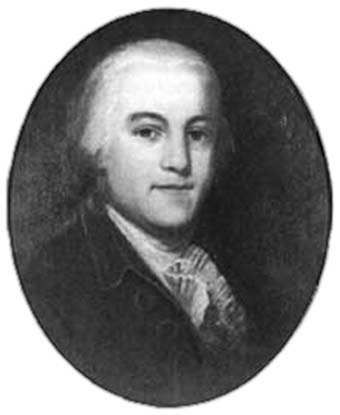Last updated: December 27, 2019
Person
Edward Rutledge

National Park Service
The fifth son and youngest child of an Irish immigrant and physician, Rutledge was born in 1749 in Charleston, South Carolina. Like Middleton, Lynch, and Heyward, the other South Carolina signers of the Declaration of Independence, as a young man he studied law in England. In 1773, during his first year of practice on his return to Charleston, he won Whig acclaim by obtaining the release of newspaper publisher Thomas Powell, who had been imprisoned by the Crown for printing an article critical of the upper house of the colonial legislature. The next year, Whigs named Rutledge as one of five delegates to the First Continental Congress. He married Henrietta Middleton, his colleague's sister. The Rutledges had three children.
Rutledge spent his first congressional term in the shadow of the more experienced South Carolina delegates, among them his older brother, John, and his father-in-law, Henry Middleton. During 1775-76, however, both in Congress and in two South Carolina provincial assemblies, his increasing self-confidence and maturity brought him the esteem of his associates. In the latter year, two of the senior South Carolina delegates, Christopher Gadsden and Henry Middleton, retired from Congress and Thomas Lynch, Sr., suffered an incapacitating stroke. Rutledge, his brother absent on state business, found himself the delegation leader.
On June 7, 1776, when Richard Henry Lee of Virginia proposed national independence, Rutledge led the moderates in securing a delay in the voting. He knew that independence was inevitable. In March his colony, preceded only by New Hampshire, had adopted a constitution. Moreover, that same month the provincial assembly had empowered its delegates to vote for independence if they so desired. Yet Rutledge firmly believed that the colonies should first confederate and nurture foreign alliances to strengthen themselves for the perilous step they were about to take. When the vote on independence came up on July 1, he refused to yield and South Carolina balloted negatively. But nine of the colonies voted affirmatively. Rutledge, realizing that the resolution would probably carry anyway, proposed that the vote be recast the following day. He persuaded the other South Carolina delegates to submit to the will of the majority for the sake of unanimity, and South Carolina reversed its position.
Rutledge's last important assignment occurred in September, when he accompanied John Adams and Benjamin Franklin on a vain peace mission to Staten Island to negotiate with British Admiral Lord Richard Howe, who in union with his brother, Gen. William Howe, had been assigned as peace commissioners and vainly tried to resolve the differences between the colonies and the mother country. Two months later, Rutledge departed from Congress in order to resume his law practice in Charleston.
In 1778, Rutledge accepted a seat in the state legislature and the next year won reelection to Congress, though military duties prevented his attendance. As a militia captain, in February 1779 he took part in Gen. William Moultrie's defeat of the British at Port Royal Island. In May 1780, after the British captured Charleston, Rutledge, as well as Heyward, Middleton, and other patriot politicians became prisoners of war and were imprisoned in St. Augustine, Florida until July 1781.
From 1782 until 1798, Rutledge sat in the state legislature, which on three occasions designated him as a presidential elector. During this period, his mistrust of unbridled republicanism reinforced his conservatism and brought him into the Federalist Party. In private life he flourished, his wealth increasing through his law practice and investments in plantations. In 1792, his first wife died and he remarried. To crown his achievements, six years later he was elected governor. Early in 1800 at the age of fifty, nearly a year before the end of his term, Rutledge died in office.
